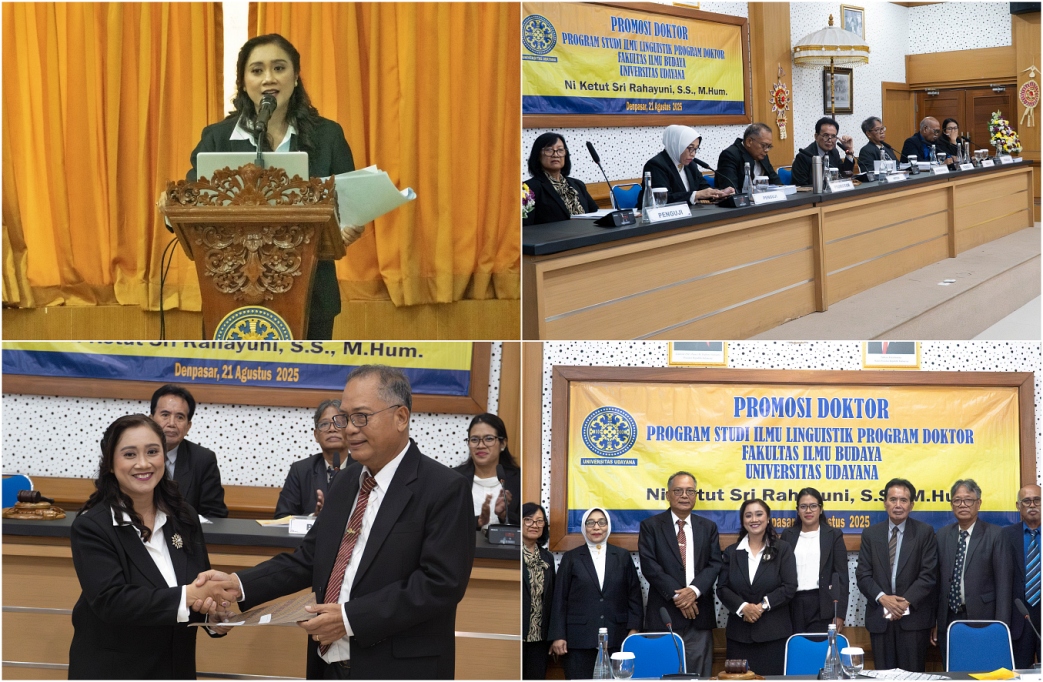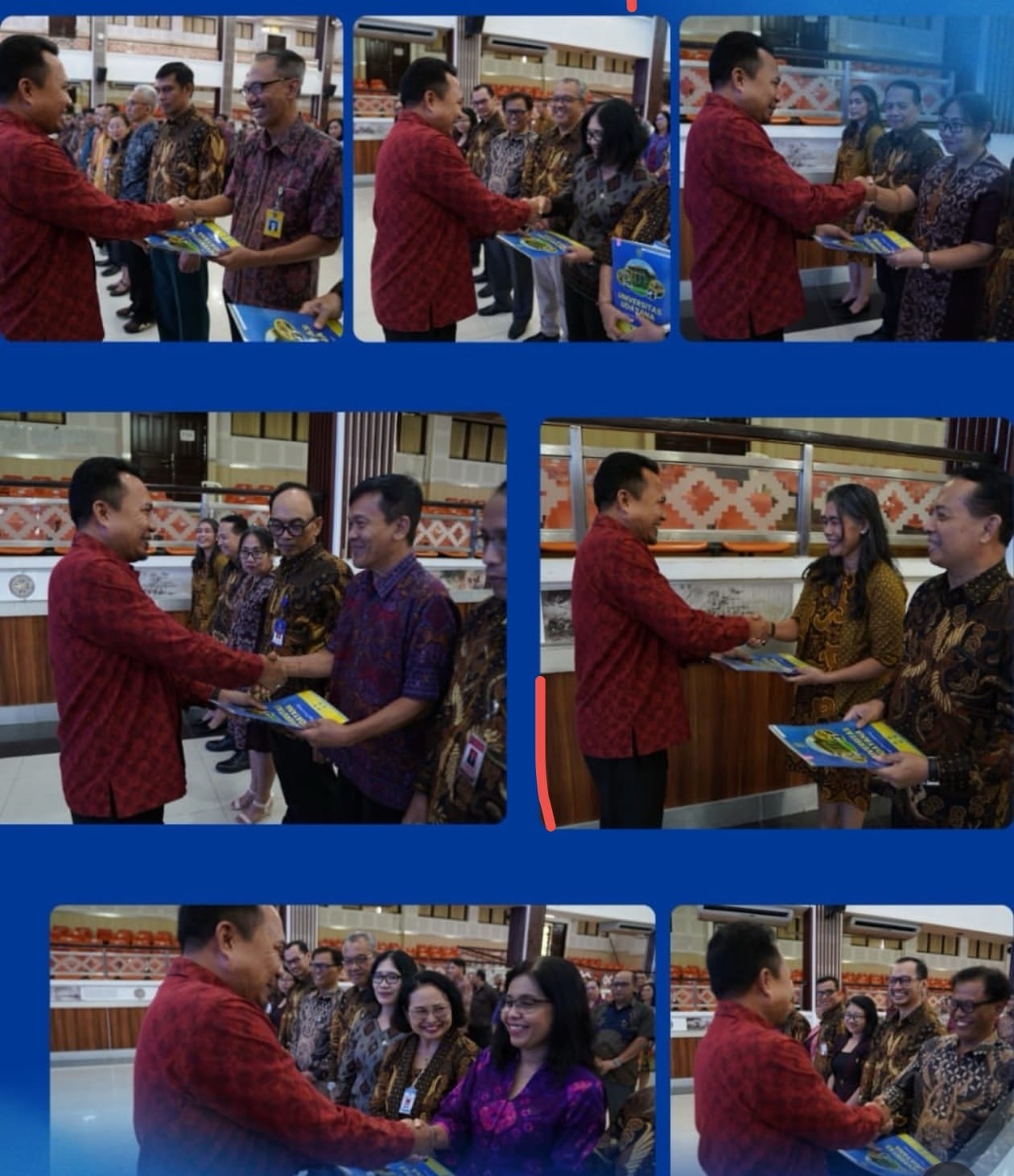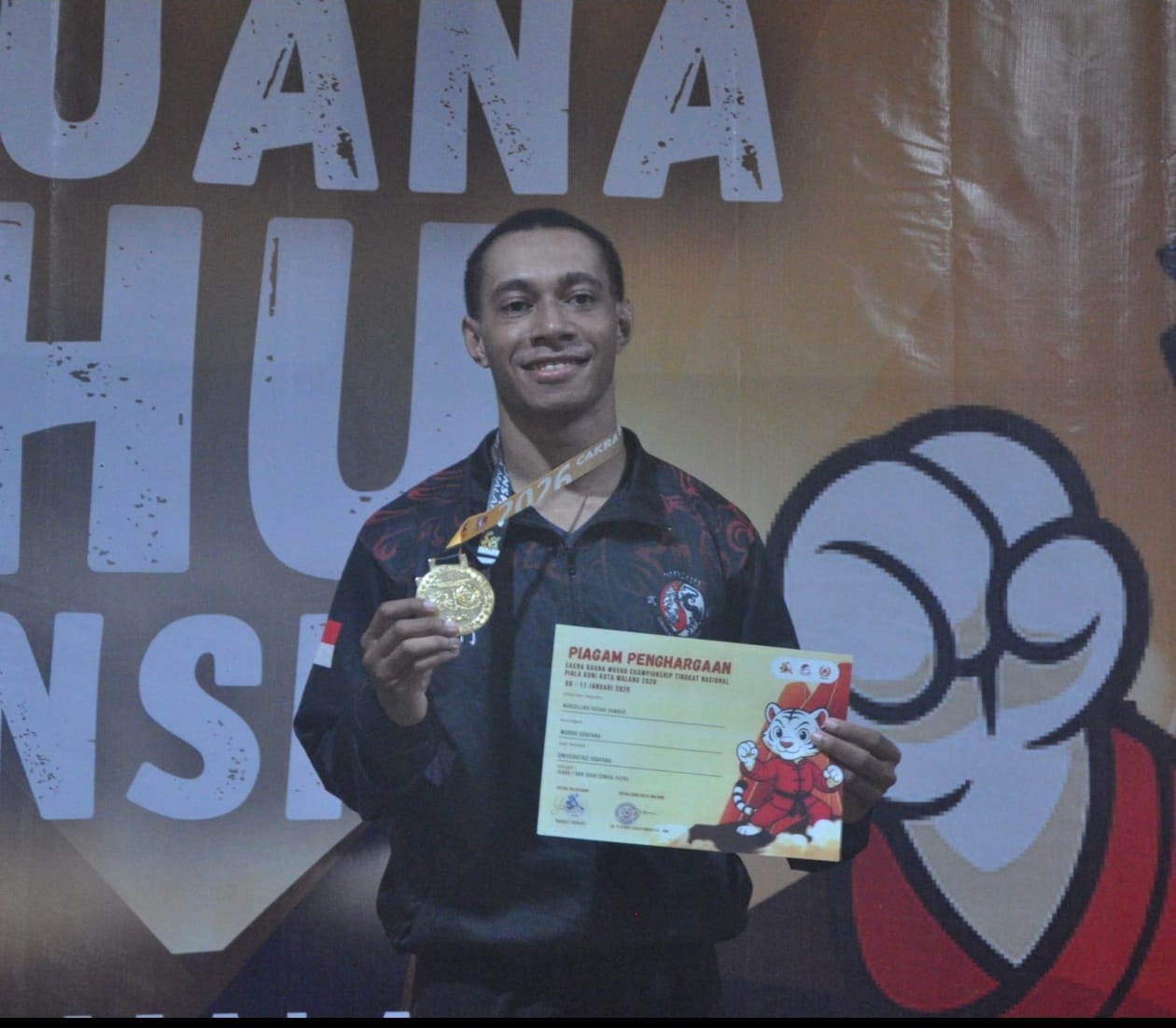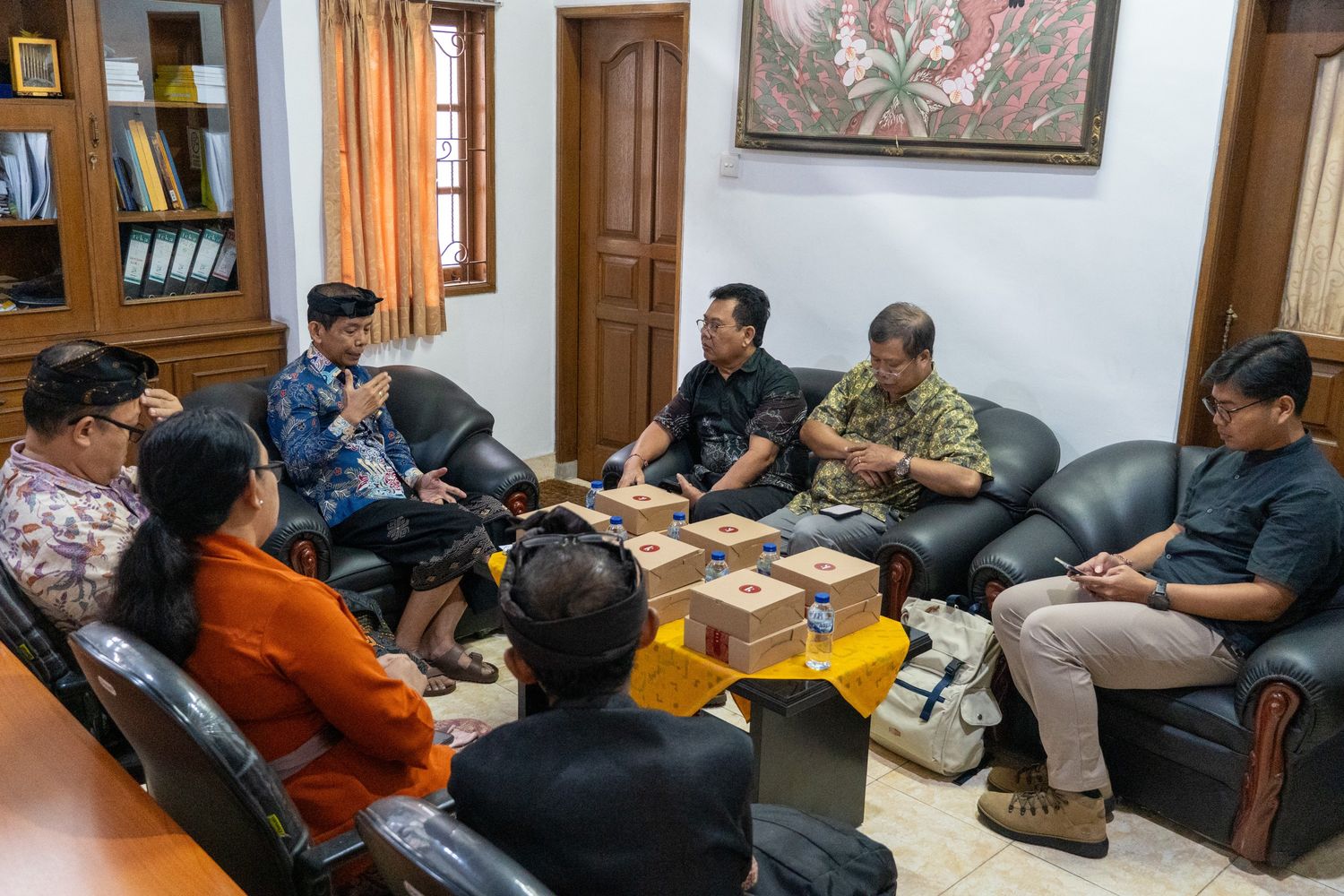Discussing Contextual Meaning in Indonesian Political Speech, Lecturer of Bachelor of English Literature, Faculty of Humanities, Udayana University Earns Doctoral Degree
On Thursday, August 21, 2025, the Dissertation defense of the Linguistics Study Program, Doctoral Program, Faculty of Humanities, Udayana University, took place in the Ir. Soekarno Room, Poerbatjaraka Building, 4th Floor, Faculty of Humanities, Udayana University. Ni Ketut Sri Rahayuni, S.S., M.Hum., successfully defended her dissertation and graduated with a GPA of 3.83 and Very Satisfactory graduate honor. She is the 268th (two hundred and sixty-eighth) graduate of the Faculty of Humanities, Udayana University, and the 274th (two hundred and seventy-fourth) graduate of the Linguistics Study Program, Doctoral Program, Faculty of Humanities, Udayana University.
Promovenda presented her dissertation entitled "The Complexity of Contextual Meaning in Indonesian Political Speech Texts by Public Figures During the 2024 Presidential Election Period on Social Media X." The Dissertation defense was chaired by Prof. Dr. Ketut Artawa, M.A. who also serves as Co-Promoter II, Prof. Dr. I Wayan Pastika, M.S. as promoter and examiner, and Prof. Dr. I Made Netra, S.S., M.Hum. as Co-Promoter I. The examining team in this defense are Prof. Dr. Drs. I Made Rajeg, M.Hum., Prof. Dr. Ni Luh Nyoman Seri Malini, M.Hum., Prof. Dr. Dra. Luh Putu Laksminy, M.Hum., Dr. Drs. Anak Agung Putu Putra, M.Hum., and Dr. Putu Dewi Merylna Yuda Pramesti S.S., M.Hum as external examiner from Ganesha University of Education.
The background of this dissertation is based on the shift in political communication in the digital era, where social media X has become the primary platform for conveying concise yet contextually meaningful political messages. This meaning is constructed not only through verbal elements but also non-verbal and multimodal means, distinguishing it from conventional communication. This fast-paced, interactive, and often multi-interpretable nature makes pragmatic analysis relevant for examining the layers of explicit and implicit meaning within it. This research is designed to fill the gap in research that specifically integrates speech act theory, indexicality, and socio-ideological context analysis in political speech in X during the 2024 Election.
This dissertation uses a qualitative approach with content analysis techniques to analyze the data. The theoretical framework used is pragmatic theory as the primary foundation, which views the meaning of language as a function of its use in a social context. This theory is strengthened by the application of Searle's speech act theory, which divides speech into locutionary, illocutionary, and perlocutionary acts, as well as Levinson's indexicality approach, which analyzes linguistic and non-linguistic signs whose meaning is dependent on context. The object of research in this dissertation is the political speech text produced by Indonesian public figures and uploaded on social media X during the 2024 presidential election period. This object was chosen because of the intense communication dynamics, full of rhetorical strategies, and containing complex layers of meaning.
Political speech on X tends to combine verbal (text) and nonverbal elements (images, colors, emojis, punctuation, capital letters). Four public figures were selected because of their high level of activity on X and significant influence in national political discourse: Denny Siregar (DS), a social media activist known for his sarcastic style. Natalius Pigai (NP), a former commissioner of the National Human Rights Commission (Komnas HAM), is vocal about political and human rights issues. Najwa Shihab (NS) is a senior journalist and host of Mata Najwa, critical of government issues. Kiky Saputri (KS) is a comedian and public figure who often conveys political criticism through humor.
The research results show that political speech texts on social media X have diverse functions, such as statements, persuasion, rebuttals, negations, commands, and ambiguities. It was also found that these political speeches often contain layers of double-layer illocutionary acts, where explicit and implicit meanings coexist. Contextual meaning is reinforced through the use of verbal and nonverbal indexicality that strategically frames political discourse with emotional and ideological nuances. This study concludes that the complexity of meaning in political speech in digital spaces is shaped not only by linguistic structure but also by context, delivery strategies, and the process of collective public interpretation.




UDAYANA UNIVERSITY